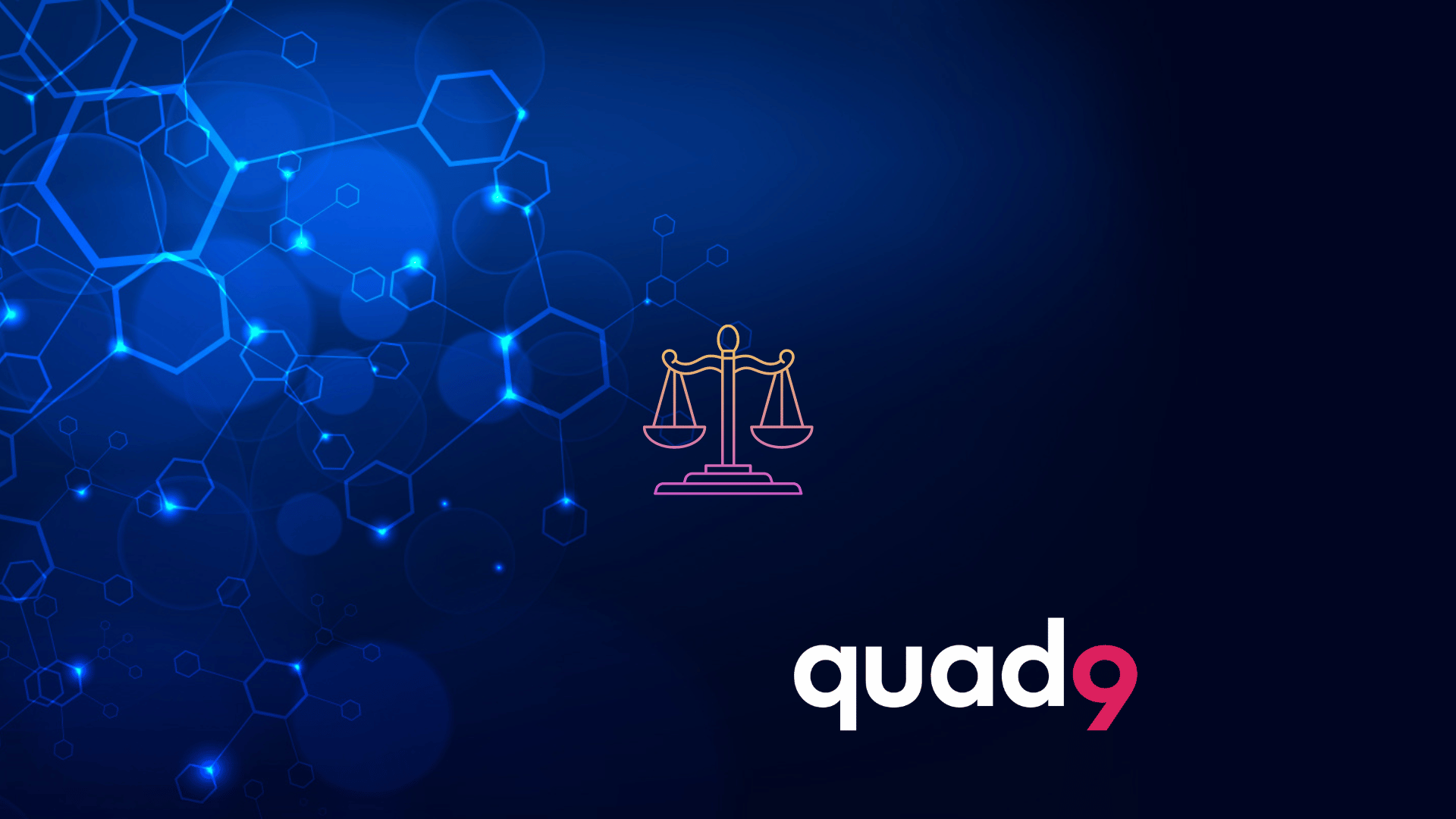Quad9’s Opinion of the Recent Court Ruling in Leipzig

An Update on Quad9’s Legal Battle to Protect Users’ Access to Information
As previously covered, Quad9 has been part of a potentially precedent-setting legal case involving Sony Music. On March 1st, 2023, the Leipzig Regional Court ruled in favor of Sony Music. This ruling means that Quad9 has no choice but to block the domain(s) in question at a global scale as directed by the court. That said, Quad9 is far from ready to give up the fight in terms of protecting users’ access to information.
Quad9’s Opinion and Potential Implications of the Ruling — Next Steps
Quad9 is shocked that the court ruled in favor of Sony Music, but they are not disheartened and will continue fighting for the freedom of access to information by citizens around the globe. Quad9 feels they were chosen as a target because, as a non-profit player with a limited budget and small market share, Sony potentially did not expect Quad9 to have the means of fighting back. This would be an easier means of establishing legal precedent to potentially control domains served by all DNS recursive resolvers.
Although Quad9 is complying with the ruling in the interim, there are several points that they feel should be brought to the attention of citizens around the globe who value privacy and freedom of access to information on the Internet — as the potential implications of the ruling could reach a global scale.
German court decisions are normally limited to Germany, which is why Quad9 has implemented geoIP on its infrastructure in Germany to prevent the domain names in question to be resolved for users querying from Germany. However, there are loopholes, such as VPNs, beyond Quad9’s control. The court deemed this not to be sufficient. The court’s decision ignored the VPN concept and implies that Quad9 must block these domains regardless of how users reach them or from what nation those intentionally disguised queries originate. Quad9 believes this is an exceptionally dangerous precedent that could lead to future global-reaching commercialized and political censorship if DNS blocking is applied globally without geographic limitations to certain jurisdictions.
The court did not apply the rules of the German Telemedia Act. With that, Quad9 does not enjoy the associated limitations from liability. Quad9 also believes that it should benefit from these exemptions from liability, particularly since the European Lawmakers have noted in the recently adopted Digital Services Act (Recital 28) that providers of services establishing and facilitating the underlying logical architecture and proper functioning of the internet, including technical auxiliary functions, can also benefit from the exemptions from liability and explicitly mentioned providers of DNS Services.
The court established that Quad9 accepted the wrongdoer liability – Quad9 feels that this application of the wrongdoer liability is absurdly extreme given the circumstances. To put this into perspective, applying wrongdoer liability in this setting is akin to charging a pen manufacturer with fraud because a stranger forged documents while using the manufacturer’s writing utensil.
Upon the initial injunction in 2021, Quad9 made significant investments to deploy in best-in-class GeoIP technology to prevent users in Germany from accessing the queries in question on Quad9 systems in Germany — However, they were still punished.
Quad9 believes that it is being held to copyright laws that were not intended to be used against recursive resolvers, but instead were meant to apply to services with actual choice and governance over hosting infringed intellectual property or doing business directly with those who house that data. Quad9 does not house any of the data claimed to be infringing and has no business relationship with the organization housing that data. Also, they believe that Sony did not exhaust its means to go after the actual perpetrators or the hosting company first.
Ultimately, Quad9 believes that this case — at its core — is not about copyright infringement but instead a testament to how the jurisdiction of blocking can impact the global ecosystem. They will continue to fight not only for DNS recursive resolvers but also for the freedom of access to information for common global citizens. Also, such a decision may open the floodgates for rights holders to approach other operators of recursive resolvers.
This means tens of thousands of access providers and company network operators, to name but a few. Not all of them will have the courage, expertise, and financial means to properly examine or object to such blocking requests. Instead, they may just block to minimize their legal risk. That will have a chilling effect on freedom and diversity of speech. Let’s not forget DNS operators only have a binary choice, namely to block entire domain names or not. If they do, all content and services are no longer accessible, and that may include legal content.
Quad9’s first step towards continuing this fight will be appealing the decision reached by the Leipzig Regional Court.
Being a small, non-profit organization, litigation has put a financial and operational strain on Quad9 as they continue funding its defense. They ask that anyone capable and inclined consider donating to maintain the foundation of a free and open Internet. Quad9 relies on donations and grants to continue providing cybersecurity and privacy services to our users.
If you or your organization wish to support or partner with Quad9, please get in touch with us via our Contact page.
